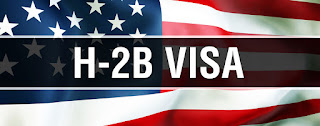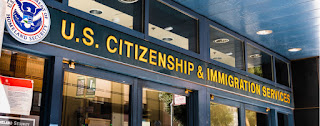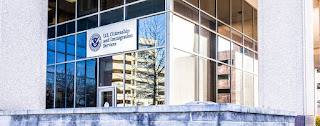On May 12, 2020, the United States Citizenship and Immigration Services (USCIS) announced that it had published a temporary final rule to change certain H2B requirements to help support the U.S. food-supply chain [PDF version]. This rule comes in the midst of the ongoing coronavirus (COVID-19) outbreak in the United States. You may read the final rule here [PDF version].
The USCIS explains that the rule applies only to certain aliens in the United States who are currently in valid H2B nonimmigrant status. It does not raise the congressionally mandated H2B cap of 66,000 for the remainder of fiscal year 2020.
In normal H2B petitions, the petitioning employer must demonstrate that there is not a sufficient supply of U.S. workers who will be available at the given time and place to perform the services set forth in the H2B petition. Furthermore, the petitioner must demonstrate that the employment of the alien beneficiaries will not adversely affect the wages and working conditions of similarly-situated U.S. citizens and permanent residents.
The final rule will give petitioners additional flexibility for employing current H2B workers in positions essential to the U.S. food-supply chain.
First, the rule will allow H2B employers to employ an H2B nonimmigrant physically present in the U.S. while the employer's H2B petition on behalf of that H2B nonimmigrant remains pending. This special provision only applies if the petitioner attests that the H2B worker will perform temporary services or labor that is essential to the U.S. food supply chain. This temporary employment authorization will also last for only 60 days.
Second, the rule allows current H2B workers who are working in positions that are essential to the U.S. food supply chain to remain in the United States beyond the three-year maximum allowable period of stay. This flexibility applies both to petitions filed by the H2B alien's current employer and by a potential new employer. Again, this additional flexibility applies only in cases where the petitioner attests that the H2B worker will perform temporary services or labor that is essential to the U.S. food supply chain.
The USCIS explains that “petitioner seeking the flexibilities under this temporary final rule will be required to submit an attestation, swearing under penalty of perjury, that the H-2B worker(s) will be performing temporary nonagricultural services or labor or that is essential to the U.S. food supply chain.”
The temporary rule took effect immediately on May 12, 2020.
Please visit the nyc immigration lawyers website for further information. The Law Offices of Grinberg & Segal, PLLC focuses vast segment of its practice on immigration law. This steadfast dedication has resulted in thousands of immigrants throughout the United States.
Lawyer website: http://myattorneyusa.com



